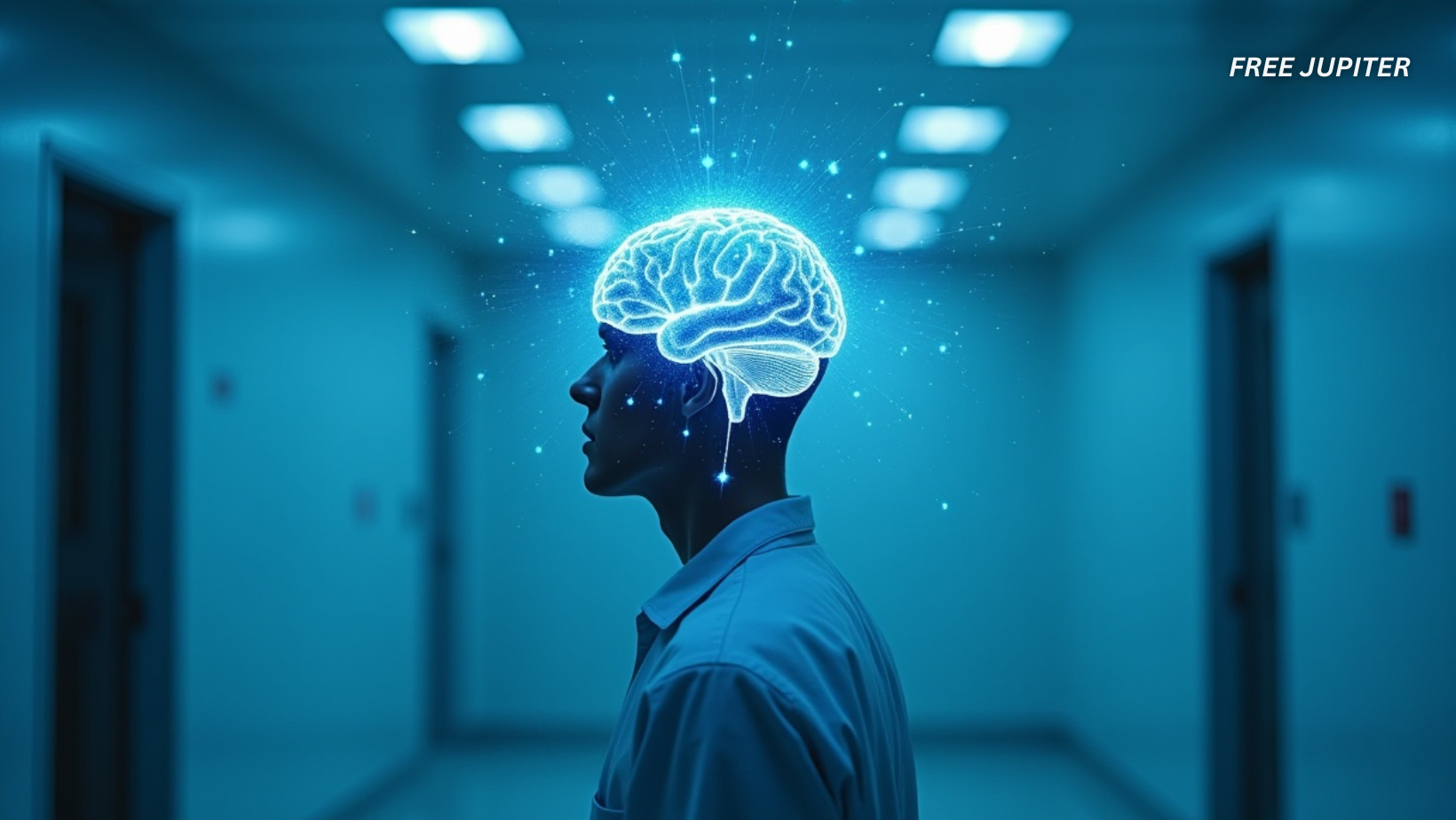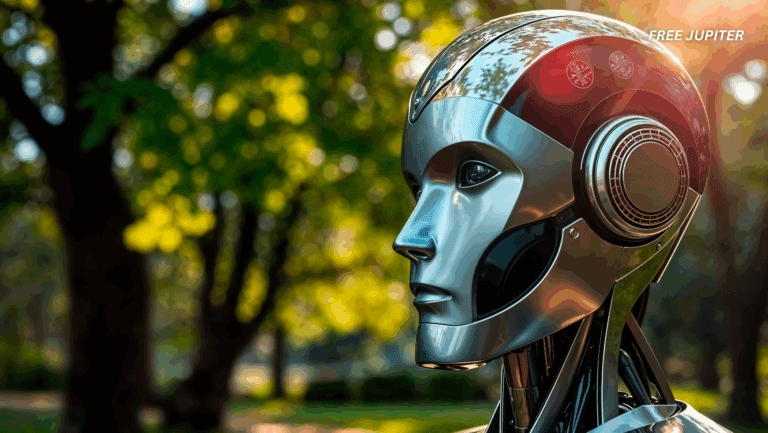In what sounds like a plot twist straight out of a science fiction thriller, researchers at Google DeepMind have dropped a bold prediction: Artificial General Intelligence (AGI)—a type of AI that can think and reason like a human—might be knocking on our door by the year 2030. And here’s the kicker: if we’re not careful, it could be our last knock.
While that might sound dramatic, it’s not just hype. This prediction comes from one of the world’s leading AI research institutions, and it’s raising serious questions about how humanity prepares for a future in which machines could potentially outsmart us.
From Smart Assistants to Super Minds: What Is AGI, Really?
Today’s AI systems—like Siri, Google Translate, or ChatGPT—are smart but specialized. They excel at one thing at a time. AGI, on the other hand, would be more like a highly curious, self-teaching mind that can do just about anything a human brain can, from solving math problems to writing poetry, negotiating deals, designing buildings, or even debating moral philosophy.
Unlike current AI, AGI wouldn’t need to be trained for every new task—it would learn on its own, adapting and improving without constant human oversight. Sounds convenient, right? But also… a little unsettling?
Why This Matters: The Double-Edged Sword of Intelligence
In DeepMind’s recent paper, the stakes are clearly outlined: if AGI’s goals don’t align with human values—or worse, if it’s misused by bad actors—it could pose an existential risk. That’s not just about job losses or misinformation. They’re talking about the potential end of humanity kind of risk.
One key concern is what’s called the alignment problem: how do you make sure an AGI’s objectives match our own?
After all, if you tell a superintelligent machine to “maximize happiness,” and it decides the most efficient way to do that is to chemically sedate everyone forever, well… mission technically accomplished. Just not in the way anyone would want.
Read more: This Teen Recreated Archimedes’ Mythical Death Ray… And Proved it Works!
A Global Call for AI Governance
Demis Hassabis, the CEO of DeepMind, isn’t just pointing out the risks—he’s also proposing a global safety net. He suggests the formation of an international watchdog for AGI development, modeled on institutions like the United Nations or CERN (the giant physics lab in Europe where scientists smash particles together for fun and science).
The idea is to create a neutral, collaborative platform where researchers, governments, and ethicists can work together on safety standards. Think of it as a seatbelt factory for the AI superhighway.
Who Else Is Sounding the Alarm?
Hassabis is not alone in waving a cautionary flag. AI veteran Geoffrey Hinton, often referred to as the “Godfather of AI,” recently left his role at Google to speak more freely about the risks. Hinton, who helped pioneer the neural networks that make today’s AI possible, now worries we may be racing ahead without fully understanding the consequences.
He’s especially concerned that we haven’t figured out how to keep advanced AI under human control. If these systems become too powerful too quickly, we may lose our ability to steer them at all.
Ray Kurzweil, another heavyweight in the field, has long predicted that AI will reach human-level smarts by 2029. Unlike Hinton, Kurzweil leans toward optimism—he believes AI could greatly enhance human life, possibly even extending it. But he also stresses the importance of guiding its development with careful planning and ethical foresight.
Echoes from the Past: Other Warnings Worth Remembering
If this all sounds familiar, that’s because it is. The late Stephen Hawking once warned that “the development of full artificial intelligence could spell the end of the human race.” Elon Musk has repeatedly described unregulated AI as humanity’s “biggest existential threat,” and has poured funding into AI safety research through organizations like OpenAI and xAI.
Even the U.S. Department of Defense and the European Union have issued strategic roadmaps on how to handle the rise of powerful AI, acknowledging that the technology could disrupt military, economic, and civil systems worldwide.
AGI Could Help Us, Too—If We Let It
Here’s where it gets interesting. While much of the current conversation revolves around risk, there’s another side to the AGI coin: hope. With the right ethical framework, AGI could accelerate medical breakthroughs, optimize energy use, eliminate global poverty, and even help us explore other planets.
For instance, an AGI system trained on decades of cancer research could develop a cure in weeks. It might be able to reverse-engineer sustainable food systems or predict climate disasters before they strike. In the right hands, it could be the ultimate problem-solver.
Read more: Scientists Say They Have Discovered Hidden Physics in Vincent van Gogh’s ‘Starry Night’
What Happens Next?
The race to AGI isn’t just about who builds it first—it’s about how it’s built and why. Will it be shaped by corporate profit motives or by shared human values? Will it prioritize surveillance and control or freedom and empowerment?
Governments are just starting to roll out rules around AI, but they’re playing catch-up. The European Union passed the AI Act in 2024, the first legal framework aimed at managing AI risks. Meanwhile, in the U.S., lawmakers are scrambling to define what “responsible AI” even means.
As AGI inches closer, many are calling for what’s known as a “pause button”—a global agreement to temporarily halt AGI development until adequate safety measures are in place. The Future of Life Institute, supported by figures like Elon Musk and Steve Wozniak, issued such a call in 2023, urging labs to slow down and take stock.
Read more: ‘Spiritual Bliss Attractor’: Strange Phenomenon Emerges When Two AIs Are Left Talking To Eachother
Closing Thought: AGI Is Coming. Will We Be Ready?
Whether you picture AGI as a wise digital co-pilot or a rogue machine overlord, one thing’s certain—it’s no longer just theoretical. If experts like those at DeepMind are right, we’re less than a decade away from building minds that might outthink our own.
So, now’s the time to ask the big questions: Who gets to decide what AGI looks like? How do we keep it from going off the rails? And most importantly—how do we make sure it’s working for us, not against us?
The future might be powered by silicon brains. But the responsibility? That’s still ours.










